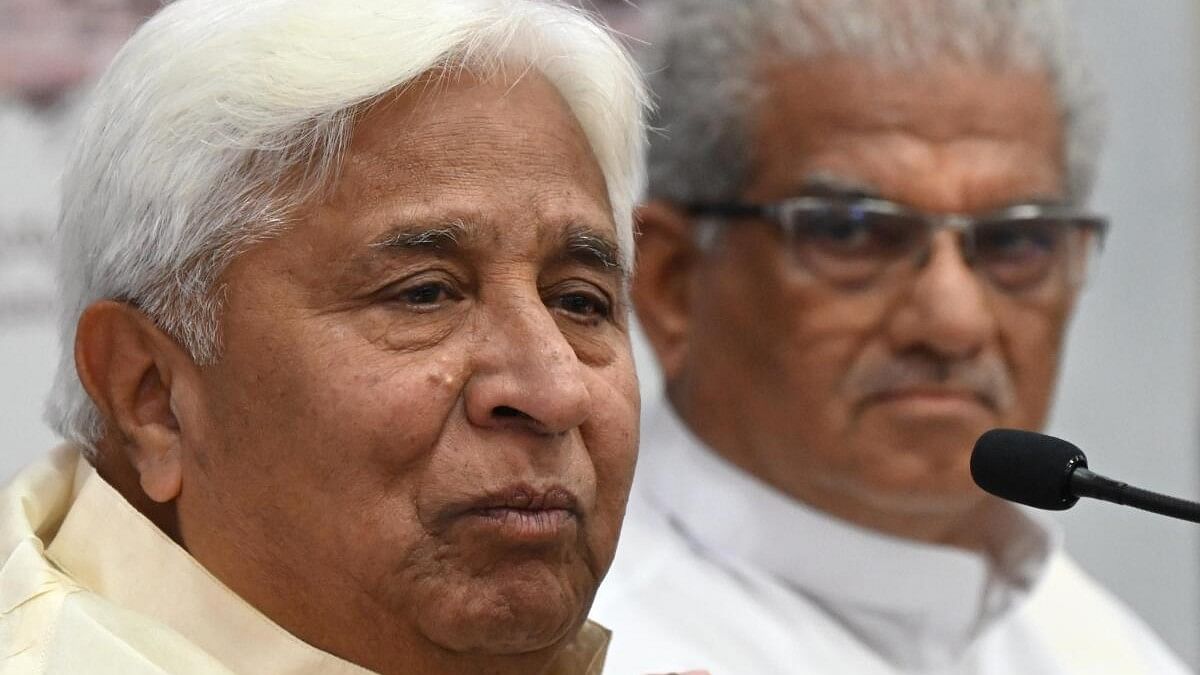
Law & Parliamentary Affairs Minister H K Patil
Credit: DH File Photo
Bengaluru: Within hours of the three new criminal laws coming into force, the state government on Monday decided to bring in at least 23 amendments to the Acts, citing some “errors and contradictions”.
For instance, the ruling Congress feels the new Bharatiya Nyaya Sanhita criminalises hunger strike by equating it to suicide while the same Act decriminalises suicide.
Law and Parliamentary Affairs Minister H K Patil told reporters here that the Union government has implemented the draft Bills without incorporating nine suggestions each in Bharatiya Nyaya Sanhita and Bharatiya Nagarik Suraksha Sanhita and five suggestions in Bharatiya Sakshya Adhiniyam Bill in the Acts which came into force on Monday.
Soon after the three Bills were introduced in Lok Sabha by the Union government in August 2023, the state government had formed an expert committee headed by Law Minister Patil in September 2023. The report was submitted to Chief Minister Siddaramaiah in October 2023. Thereafter, the CM wrote to Union Home Minister Amit Shah on incorporating the 23 suggestions from the state before the Bills get approved in Parliament.
“However, none of our suggestions were incorporated in these new Acts,” Patil said.
According to Patil, one of the glaring errors in these Acts is that there is no specific provision to punish those who insult the national flag, national anthem and Father of the Nation.
He said the state government wants to strengthen the provisions for punishment clauses for those who insult national figures and emblems as the new law restricts punishment to three years and a nominal fine on the guilty.
“Therefore, the state government will take up the matter at the next Cabinet meeting (July 4) and finalise dates to give effect to the amendments using powers granted to the state under the Constitution. If all goes according to plans, we may table the amendments in the upcoming session,” he said.
He said the implementation of new laws has brought in a lot of complications rather than easing the existing legal mechanism in the country. “The new laws are filled with a lot of ambiguities, especially with regard to the definition of organised crime. This is a new addition to the law, but it is not defined properly. So, we need to have proper definitions for such additions. Lack of definitions will create confusion. Apart from this, the state government intends to restore the powers of seizing properties belonging to criminals to the judiciary. The new law allows the police to seize such properties,” he said.
On a question about the DG&IGP and other senior police officers welcoming the new laws on their respective social media sites, the law minister maintained that the officers are bound by the new laws as the laws are still not amended and so, they will have to implement them. “They are not wrong in saying that. As a law minister, I can speak about the need to amend these laws and not the officers. They are doing their duty,” he said and maintained that until the amended laws get the President’s assent, the new laws will be in force in the state.
Key amendments sought by state
* Additional chapter on cyber crime, economic offences
* Bring in separate provision to define necrophilia
* Feels 90-day police custody is violation of human rights, and will reduce it
* Organised crimes to be defined, clear demarcation between small time and big crimes needed
* Wide powers granted to police to detain under the Clause 172 are prone to misuse
* Seeks separate chapter for investigations, prosecution and trial of cases and counter cases